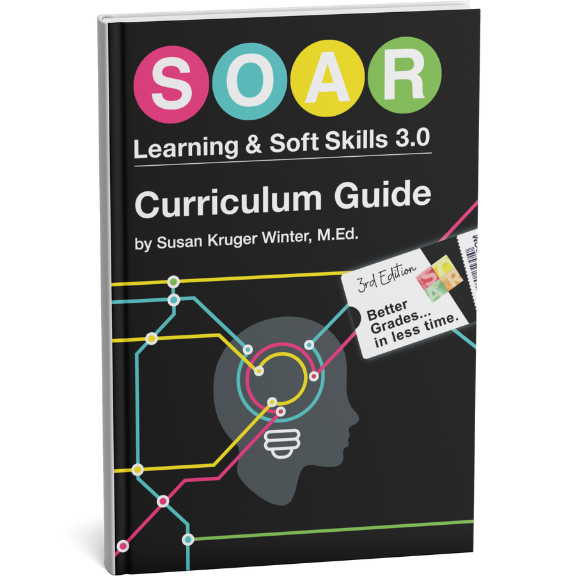“The Cue to Reading” Series (Article 7): Journey of a Reading Teacher
It was my husband who first suggested I go for a reading degree when I entered grad school.
“Are you kidding?” I replied. “I HATE teaching reading!”
It was August and we were on a road trip, heading home after camping for a week on Michigan’s west coast. I was supposed to start grad school in September and was not looking forward to it…at all! I enrolled simply to get the credits required to keep my teaching certificate and had recently learned some disappointing news about the program in which I was registered.
As we drove along, the solution seemed obvious to my husband, Brian, but not yet to me.
I had spent several hours the previous week sitting around the campfire, reading a book my principal had asked us to read that summer. I had put it off for weeks, but it wasn’t long before I was hooked! The book, Mosaic of Thought, by Ellin Oliver Keene and Susan Zimmermann, was about teaching reading. It begins with the authors sharing stories of their own experience and those of other teachers, all admitting that they were confused about how to teach reading effectively. One teacher said, “I know what NOT to do, but I have no idea what I SHOULD do.”
That was me!
As a young teacher with low seniority, I had taught in three different school districts in the previous four years. None of these districts had an established reading curriculum or ANY reading materials. Somehow, I was expected to teach reading using thin air…and my own creativity.
However, until reading Mosaic of Thought, I assumed I was alone. My colleagues all seemed to have “figured it out,” so I forged ahead. I had purchased dozens of books at the teacher’s store and poured through teaching magazines for new insights and creative lesson plans, but deep down, I was frustrated. As I read the “confessions” of other teachers, I felt validated! I shared my excitement with Brian several times as I read next to that campfire.
On the drive home, however, Brian patiently responded to my protest about changing my degree to reading. “Look at how much you enjoyed that book this week. Maybe you don’t like to teach reading because you don’t know HOW to do it.” The freeway rolled along beneath us as I stared out the window and thought long and hard about what he said.
The next day, I went to the university and changed my major.
I never could have imagined what was in store for me. Brian was absolutely right; I had not enjoyed teaching the subject because I did not know HOW to teach it. But, it wasn’t long before reading became my absolute favorite time of the day and my students were just as jazzed as I was.
I am sharing my experience because I know my story is not unique. I had a bachelor’s degree and a state certificate that declared I was capable of teaching reading. The paperwork verified that I could do it effectively in all classrooms from preK-6.
The problem is, my undergraduate training was effective at teaching me what NOT to do. Like the teacher quoted in Mosaic, I didn’t know what I SHOULD do. And, I didn’t know what I didn’t know until Brian helped me connect the dots.
There are many other teachers out there who have experienced something similar. They were taught a few things and have some resource books…perhaps even a reading “curriculum,” but none of their training has ever focused on the fundamentals of the reading process or solid strategies to teach it.
This causes confusion from parents. I once did a reading assessment on a friend’s 2nd grade son. His profile was very similar to my son’s…he was very strong with two cueing systems, but struggling with decoding. I could see his struggles, but I was quite impressed with all of the good strategies he was using and enthusiastically shared my observations with my friend. A few months later, she called to inform me that her son received an “F” on his report card for reading.
The only explanation I could provide was my story. “Look,” I said, “he does struggle when he reads aloud. Clearly his teacher has never been trained on how to assess anything other than his oral reading, but this ‘F’ is not an accurate reflection of his abilities.” Of course, we then discussed options to help her son.
My journey as a reading teacher helped me understand where my son’s teachers were coming from when they said that he simply needed to “try harder.” I understood why they couldn’t see the same concerns I was seeing. I hope this story serves to give other parents insight and validates any dedicated teachers who have been struggling with reading instruction.
As you know, I believe that the three cueing systems are most fundamental elements to understanding the process of reading. But how about teaching them? I will delve into specific strategies in the next article…
-Susan Kruger
EB 082217
Six Steps
Conquer the Chaos
Get Our Free Guide & Information on...

"*" indicates required fields
Get Our FREE Curriculum Guide!
The SOAR® Curriculum
The most critical learning, organizing, and communication skills needed for school. Learn more here.
Who’s Using SOAR®?
SOAR® Guarantee
Click here to learn more.




